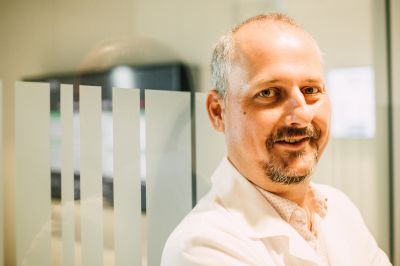
WA cancer patient tumours to be analysed as early as February 2019
A high capacity Illumina NovaSeq 6000 next generation DNA sequencer has arrived at the Harry Perkins Institute of Medical Research as part of the Australian Cancer Research Foundation (ACRF) Centre for Advanced Cancer Genomics.
The equipment will make it possible to analyse thousands of cells from hundreds of tumours and examine billions of genetic sequences to determine the genetic make-up of each tumour and provide new insights into how cancer cells evolve and interact with normal cells.
It will be housed at the world-class single-cell sequencing facility being led by Professor Alistair Forrest at the Harry Perkins Institute of Medical Research, on behalf of a consortium of cancer researchers from across Perth.
Last year the Harry Perkins Institute of Medical Research was awarded a $1.75m grant to establish the ACRF Centre for Advanced Cancer Genomics. The DNA sequencer is the second of three pieces of equipment at the Centre.
Single cell analysis of cancer tumours, to see which genes are turned on and off in thousands of cells within a patient’s tumour, is the next wave in cancer research, providing hope to patients that researchers will be able to identify new drugs to combat cancer, better predict a tumour’s response to drugs and develop innovative ways to kill cancer cells.
A consortium of cancer researchers and clinicians across Perth led by Professor Forrest, who heads up the Systems Biology and Genomics Laboratory at the Harry Perkins Institute of Medical Research, was also awarded $3.75M by the Cancer Research Trust to build a comprehensive atlas of the cell types that make up cancer tumours.
“The new equipment funded by the ACRF will make it quicker and less costly to generate large amounts of sequence data, which means the tumours of more patients will be able to be analysed.
“The low survival rates for some cancers, such as mesothelioma, ovarian and pancreatic cancers, highlight the need for these new approaches to understand and target cancer better.
“This new equipment is essential to building an in depth atlas of the cell types in tumours.
“Using advanced single cell profiling technologies, we will survey the cell types, the genes turned on and off in each cell and mutations contained in each patient’s tumour.
“Studying tumours at the single cell level provides opportunities to identify novel biomarkers, predict response rates to drugs and provide a better understanding of cancer which ultimately will lead to new treatments.
“These technologies are the next wave of genomics and we have a once in a decade opportunity to establish them and remain at the leading edge,” Professor Forrest said.
The Australian Cancer Research Fund (ACRF) supports research it considers has the greatest potential to change treatment outcomes for all Australian cancer patients.
Chief investigators on the ACRF grant included: Prof Alistair Forrest, Prof Peter Leedman and Prof Ryan Lister from the Harry Perkins Institute of Medical Research; Assoc Prof Timo Lassmann, Prof Ursula Kees, and Professor Terrance Johns from Telethon Kids Institute; Prof Christobel Saunders, Prof Camile Farah, Prof Bruce Robinson, Prof Anna Nowak, Adj Prof Richard Lake, Prof Michael Millward, Prof Wendy Erber, , and Assoc Prof Benhur Amanuel from The University of Western Australia and Prof Mel Ziman from Edith Cowan University.
Recognising the importance of next generation sequencing in Perth, co-funding for the sequencer has also been provided by The University of Western Australia, Curtin, Murdoch, ECU, and CSIRO.
